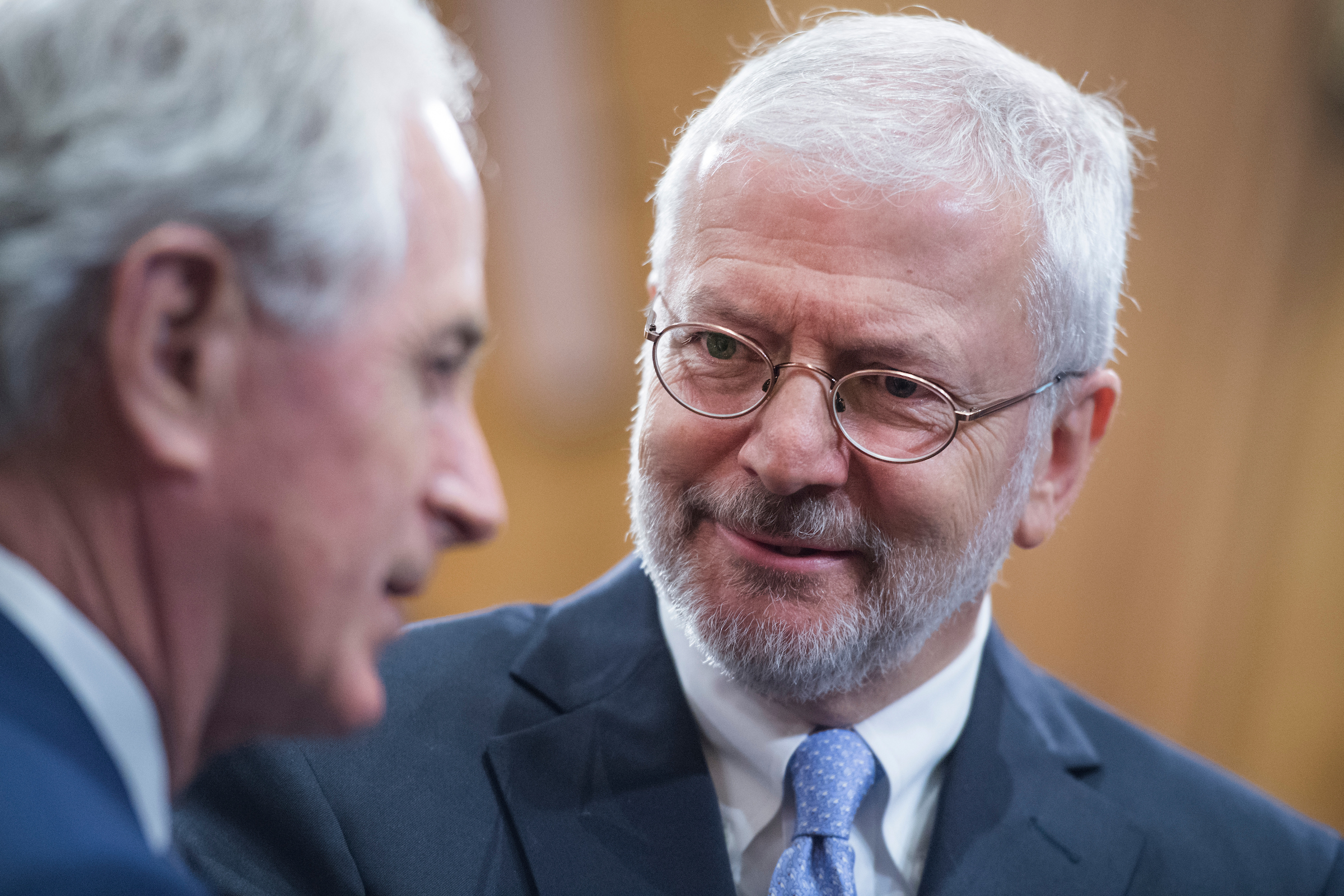Business fishing for USMCA support from pool of 100 Democrats
The Business Roundtable and other supporters are focusing on about 100 House Democrats in their search for bipartisan approval

The Business Roundtable and other corporate supporters of the proposed United States-Mexico-Canada trade pact are focusing on a pool of about 100 House Democrats in their search for votes for bipartisan approval of the agreement.
“We think there’s as many as 100 gettable Democratic votes. A very substantial minority we think can and should vote for it,” Business Roundtable President and CEO Joshua Bolten said Wednesday after a briefing on its quarterly survey of business confidence.
[Democrats say support for new NAFTA depends on Trump]
Bolten said the group and other business organizations including the U.S. Chamber of Commerce and National Association of Manufacturers “are stitched together in a good coalition” in a drive to line up votes for the pact that would replace the 1994 North American Free Trade Agreement if approved by the national legislatures of the three countries. The Mexican Senate approved the United States-Mexico-Canada Agreement in June.
The USMCA supporters have been holding events and sending out notices touting what they see as the strengths of the agreement. They’ve also been making visits to House members in their districts and in Washington.
President Donald Trump and his administration also have been calling for approval of the proposed agreement and highlighting state lawmakers and governors who support it. On Thursday, Agriculture Secretary Sonny Perdue is holding an event with three predecessors, Democrats Dan Glickman and Tom Vilsack, and Republican John Block.
Beth Ford, a Business Roundtable member and president and CEO of the farmer-owned Land O’Lakes cooperative, said most of agriculture supports the USMCA because it will give the industry a greater sense of stability. Farmers are dealing with multi-year lows in market prices, extreme weather disasters and U.S. trade tensions with China and other trading partners. Agriculture sees the approval of the agreement as a buffer in uncertain times, Ford said.
Under the proposed agreement, U.S. dairy would gain greater access to Canadian markets and Canada would end its Class 7 pricing the U.S. dairy industry calls trade distorting and discriminatory.
“For agriculture, this is a $40 billion market. Export markets are critical,” Ford said.
Business Roundtable Chairman Jamie Dimon said his members who are top company executives think the proposed pact has stronger protection for intellectual property, improved labor standards and other elements. Those changes override concerns about the agreement’s limits on investor-state dispute settlement that has allowed businesses to seek damages from Canada and Mexico for policies they say adversely affect their bottom lines.
“You have to look at it in total. It is better than NAFTA. It is better than no deal,” Dimon said.
Bolten said having the new trade agreement in place “would be a confidence restorer. Having in place a modern agreement that they can rely on, on which they can operate on long into the future is what the business community is looking for.”
If Congress does not approve the USMCA, it is unclear what Trump’s next step would be. During negotiations, he threatened several times to withdraw the U.S. from NAFTA to pressure Canada and Mexico to move closer to U.S. proposals.
Dimon said it is difficult to predict how the president would react to defeat on the USMCA.
“I don’t think anyone knows, including him right now,” Dimon said.





